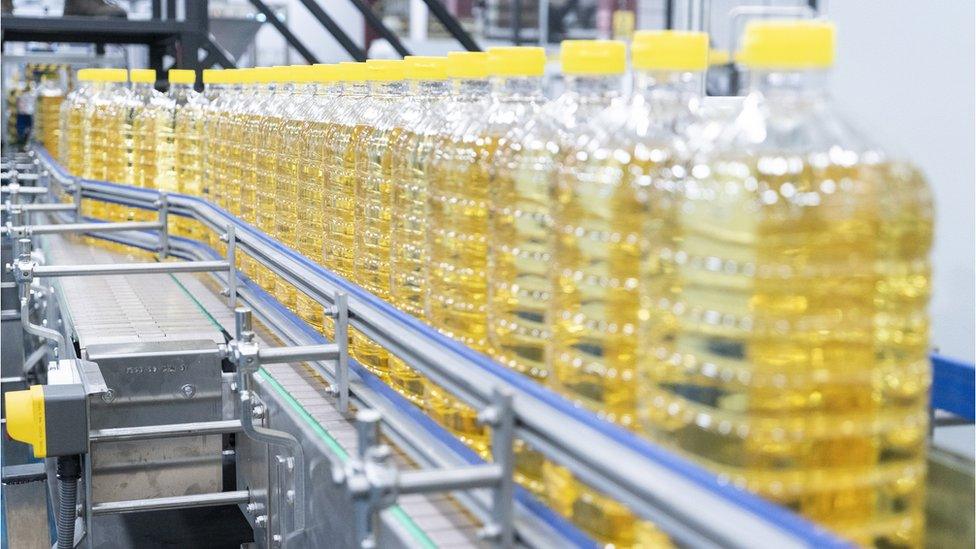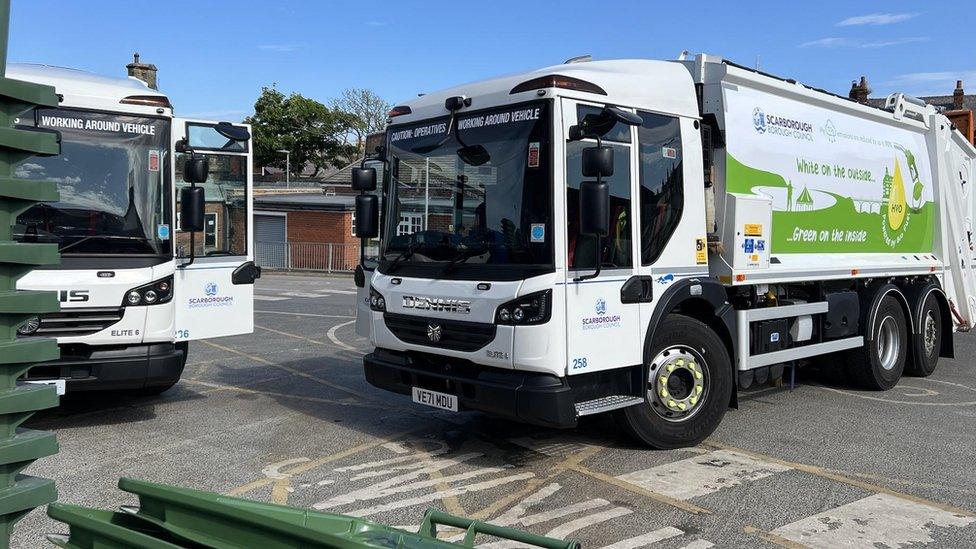Selby: Ukraine war hits plan to fuel bin lorries with vegetable oil
- Published

Selby District Council has scrapped plans to fuel its fleet with vegetable oil
The war in Ukraine has forced a council to shelve its plans to fuel its vehicles with vegetable oil.
A 12-week trial of the fuel in bin lorries and street cleaning wagons by Selby District Council cut 70 tonnes of carbon emissions, a report said.
But a permanent switch from diesel was now "financially unsustainable" due to war-inflated vegetable oil prices.
Council leader Mark Crane said the experiment had worked until Ukraine was attacked by Russia..
"It was a good trial and successful until Russia invaded Ukraine - in essence that's what killed it," he said.
Hydrogenated vegetable oil (HVO), made from waste fats and vegetable oils, is renewable, fully biodegradable and can be used in any engine without modifications.
The price of HVO has risen at a faster rate than fossil diesel, according to the council's report, and is now 35p per litre more expensive.
'Not sustainable'
It would cost the authority £110,000 per year more to fully adopt HVO, the report said.
According to the Local Democracy Reporting Service environmental services firm Urbaser, which carried out the trial, recommended that the council make the permanent switch to HVO, which it sources from Neste in the Netherlands.
The company said it would cost the council between £32,000 and £47,000 per year extra.
Councillor Tim Grogan, executive lead member for health and culture, said: "It's been a good result, but with prices the way they are at the moment, until they stabilise or go down to where they were in 2021, we can't sustain it, unfortunately."
A council officer said a switch to HVO could be made "literally overnight" if a decision was taken to do so at a later date.
In Scarborough, all bin lorries are to be powered by recycled vegetable oil as part of a year-long trial, but the council officer said it was "likely they will have to switch back to diesel in the short term as well".

Follow BBC Yorkshire on Facebook, external, Twitter, external and Instagram, external. Send your story ideas to yorkslincs.news@bbc.co.uk, external.
Related topics
- Published6 July 2022
